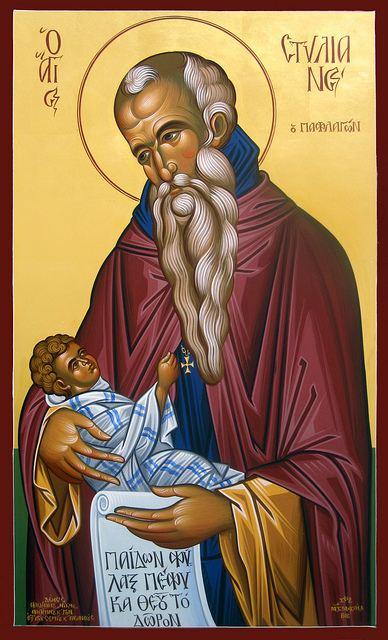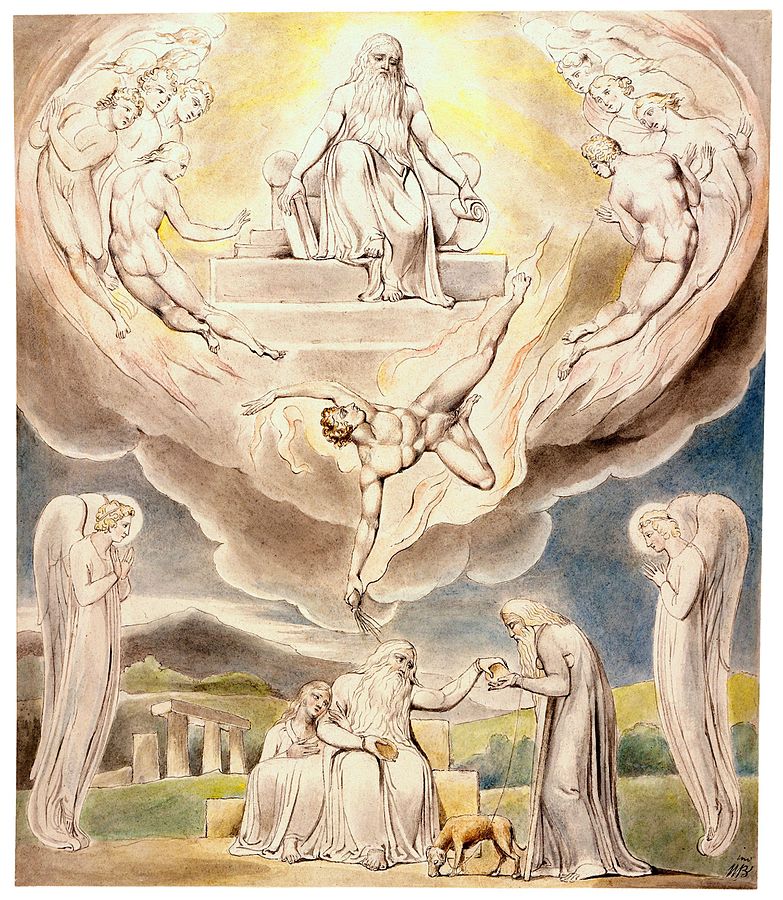John the Baptist was the one sent to prepare the world for the messiah, the chosen one of God, and yet in prison he sent his disciples to Jesus to ask if he really was the one that was expected. And he wasn’t the first. Pilate asked Jesus ‘Are you the king of the Jews?’

Through Jesus’ life the question of his identity was asked of him and he also asked it of others: Who do you say that I am? The different gospel writers each portray Jesus in slightly different lights – like looking at a Diamond and describing it through one of its facets.
In Matthew’s gospel, Jesus is chiefly presented as the Messiah, the promised King of the Jews. In Mark Jesus is presented as the suffering servant. In Luke Jesus is seen as human and compassionate saviour of all, including the gentiles. These three gospels are known as the ‘Syn-optic’ gospels, because they look at Jesus life in a similar fashion – syn meaning same, and optic meaning to view.
Which leaves the Gospel of John, whose opening verses we’ve just heard. John’s language is very different. And he too has a particular way of viewing who Jesus is. John’s gospel has been described as shallow enough for a child to paddle in and deep enough for an elephant to swim in.
John’s gospel has been described as shallow enough for a child to paddle in and deep enough for an elephant to swim in.
Certainly, as a very indifferent Greek scholar, John’s gospel was the first thing I attempted to translate because his Greek is relatively easy. As a man of his time, John would have been familiar with the Septuagint, the Greek translation of the Hebrew Scriptures. And in his writing he makes a direct connection with those scriptures.
The first two words of the Septuagint are these:
ἐν ἀρχῇ – in the beginning.
And John begins his gospel:
Ἐν ἀρχῇ ἦν ὁ λόγος – In the beginning was the word.
It looks like John starts with the Septuagint, but then quickly departs from it. After all, the whole of the first sentence of the Septuagint says: “in the beginning God Created the Heavens and the earth”. But we have to remember that the Septuagint, like our own bibles, is a translation, in this case from Hebrew. And while the first verse of the Hebrew bible does say: ‘In the beginning God created the heavens and the earth’. It also has an extra word in it.
If you look at the original Hebrew, it has seven words in that first verse; translated literally, six of them say:
“In the beginning created God the heavens and the earth.”
But between the word for ‘God’, and ‘The Heavens’ there’s a word made of the first and last letters of the alphabet. This word, AlephTav means ‘Alphabet’. In the beginning created God alphabet the heavens and the earth. Now I know that doesn’t seem to make sense at all. But very soon come these words: And God said let there be light – and there was light.
The word of God leads some to torture, rape and kill others.
According to Genesis, God didn’t manufacture creation with his hands. He spoke it into existence. It was the power of the word, formed of the letters of the alphabet, which brought into being everything that is. And so that’s why the word Alphabet is there in that very first verse. In the beginning created God alphabet the heavens and the earth. The word is the author of creation.
Which brings us neatly back to John’s gospel. In the beginning was the word. But in John’s gospel, this word, the logos, not an abstract concept.
Instead, John tells us that the word is a being. A being who created everything: “all things came into being through him, and without him not one thing came into being.” A being who was in the beginning with God – who is described as ‘The Word of God’. Now that phrase, ‘the Word of God’, is problematic in our age. This country and many others are having to deal with the fallout from one interpretation of what the word of God means in Islam.
For one group of people, the word of God is the letters on the page that lead them to torture, rape and kill others. And in Christianity the same interpretation of the written scripture, also called the word of God, has inspired crusades, and been used to keep women in subjection and people in slavery.
But John is not talking about Scripture here. He’s talking instead of something, someone else. Someone who was, before the world began. The one who moved John to write: we have seen his glory.
The unknowable author of the book of life came down and walked onto the page.
The prophet Isaiah wrote this: “God is “the high and lofty One who inhabits eternity,” and while different religions use different language and symbols, they all tend to agree on this point. All of them point to the ultimate spiritual ground of existence as transcendent and totally other. That the reality of God is so radically different from anything we know as real that in the last analysis we can say nothing about God except what he isn’t.
And yet into this land where words are apparently no use, John tells us that the Word is God. And that the Word became flesh and dwelt among us. That the apparently unknowable author of the book of life came down and walked onto the page. That the Word is Emmanuel, God with us.
As Frederick Buechner says:
“The One who inhabits eternity comes to dwell in time. The One whom none can look upon and live is delivered in a stable under the soft, indifferent gaze of cattle. The Father of all mercies puts himself at our mercy. For those who believe in the transcendence and total otherness of God, it radically diminishes him. For those who do not believe in God, it is the ultimate absurdity.”
We are all invited to worship at the tiny feet of the Word of life, and we are challenged to issue our own invitation in return, that the Word of Life, Emmanuel, would become our own “God with us.”


